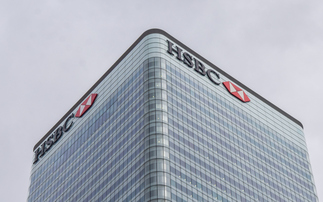Investment Week and Morningstar's latest look at the most consistent fund managers across the unit trust and OEIC universe.
This week's data covers the three years to 29 November 2019.
First State Greater China has fallen to second place in this week's Consistent 50 after 16 consecutive weeks in top spot.
It has been replaced by Tom Mansley's GAM Star MBS Total Return, which is also a new entrant to the Consistent 50.
The fund is joined by Fidelity Global Dividend and T. Rowe Price US Smaller Companies Equity, in fifth and sixth place respectively, with the top ten completely changed on the previous week.
In total, there were 14 new entrants to this week's Consistent 50.
Click here to view this week's full, interactive Consistent 50 table
Methodology
The Consistent 50 is based on an assessment of all IA funds in the UK as monitored by Morningstar. Each fund is assessed for its consistency against other similarly invested vehicles as classified by IA sectors.
In the first step, all funds without a three-year track record are excluded. In order to ensure statistical validity, sectors with less than 20 funds are also excluded, as are those that do not allow like-for-like comparison, such as Specialist, Guaranteed/Protected and Money Market.
The three-year consistency score is then calculated by measuring a fund's average decile ranking (ADR) of quarterly performance periods rolling back on a month-by-month basis over three years.
The better a fund performs against its peers over a single period, the higher up the ranks it sits and the lower its decile rank. An average of a fund's decile rank as measured over the multiple time periods provides an indication of how much it moves up or down the ranks relative to its peers.
The bottom 60% of the funds across all sectors are then excluded based on the average decile rank. The remaining 40% of funds across all qualifying IA sectors are then sorted according to how they rank against their peers in terms of volatility and Gain/Loss Profile (with those funds with lower volatility being rewarded and equal weighting given to both measures). The top 50 funds are shortlisted to make the Consistent 50.
All data is calculated on a bid-to-bid, net income re-invested, sterling basis.
Definitions
Average Decile Rank (ADR) is the funds average decile ranking of quarterly performance periods rolling back on a month-by-month basis over three years. The closer the rank to one, the more consistent the fund.
Gain/Loss Ratio is the sum of positive percentage fund returns divided by the sum of negative percentage fund returns over the chosen calculation period. The higher the resultant ratio, the greater the proportion of positive returns versus negative returns, therefore the better the fund's performance.
Volatility is the standard deviation of the fund's monthly returns over the past 36-months. The greater the volatility figure the greater the deviation in a funds monthly returns. Volatility can be used as a measure of risk.
The Morningstar RatingTM is calculated based on a fund's total returns, adjusted for risk and sales charges, relative to other funds in its Morningstar category. The overall Morningstar Rating published here is based on a weighted average of a fund's 3-, 5-, and 10-year ratings, depending on the length of its record.
3-Year Sector Average is the average performance of all funds in the IMA sector over three years. Comparing the fund's cumulative three-year performance to the sector average highlights how the fund has performed against its peers.
Morningstar Equity Style Box is a graphical depiction of an equity [share] fund's dominant investment style at a given point in time. The style box combines two dimensions: size (large shares, medium-sized shares, small shares) and valuation (growth, blend, value), resulting in nine possible style combinations. More information at www.morningstar.co.uk
(TER) and Fund Size are supplied from the fund management companies and are the latest available to Morningstar.
Data Source: © 2019 Morningstar, Inc. All Rights Reserved.















